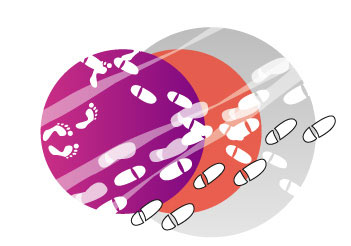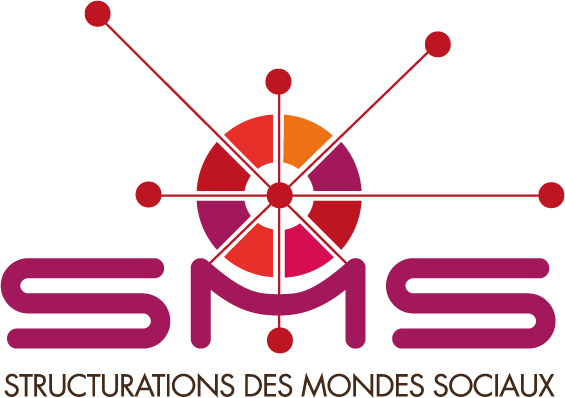-
Partager cette page
Mobility, migrations and networks
Host group
Contact person
2021/2022 : Hasnia-Sonia Missaoui (missaoui@univ-tlse2.fr)
2022/2023 : Lucine Endelstein (lucine.endelstein@univ-tlse2.fr)
Presentation
 Research Group 2, "Mobility, migrations and networks" (coordinators Chantal Bordes-Benayoun, Olivier Pliez, and Alain Tarrius) uses social network methods and more broadly those on social relations in studying mobility and migrations, fields in which these methods have been largely neglected. Research on migrations, which was essentially qualitative, was done before obtaining the Labex but was limited to groups of researchers working in different centres. By providing a common guiding thread to relationship approaches, we can now discuss issues with a shared common framework.
Research Group 2, "Mobility, migrations and networks" (coordinators Chantal Bordes-Benayoun, Olivier Pliez, and Alain Tarrius) uses social network methods and more broadly those on social relations in studying mobility and migrations, fields in which these methods have been largely neglected. Research on migrations, which was essentially qualitative, was done before obtaining the Labex but was limited to groups of researchers working in different centres. By providing a common guiding thread to relationship approaches, we can now discuss issues with a shared common framework.The first impact of the Labex has been the creation of an interdisciplinary research cluster in Toulouse. This cluster is built around a regular seminar (4 sessions per year since 2013), for exchanging ideas and experiences among specialists of migration and of networks from several disciplines (anthropology, geography, history, sociology and, outside the Labex framework, archaeology). This is a space for scholarly dialogue as well as education, due to the presence of many Master's and Ph.D. students. The second impact has been the creation of new approaches to subjects that have long been studied in Toulouse, on transnational issues, trade, gender and religion as well as in different fields of study that have only marginally addressed these issues. These include the hardening of political approaches to illegal migration and posted work in Europe, and new insights on the sociology of health.
Among the projects begun in late 2012, one research project examines posted workers in Europe, focusing on field work in France and in Portugal. Posted work in Europe, which means in principle a temporary move to another country, remains an unexplored subject within the social sciences, although public debate is just beginning. The project examines legal texts governing the phenomenon (in collaboration with legal scholars) and a series of interviews with workers. A second project concerns female migrations from outside the EU into the EU related to sex work in the French trucking milieu. This project uses field surveys and data collection on the mobility of women from the Balkans and the Caucasus to Spain. A third project is studying, in disadvantaged Toulousan neighbourhoods, the way in which the psychiatric problems of migrants and their descendants are perceived, known about, and dealt with by mental health professionals: how the culture of foreign patients or those of foreign origin is taken into account or not; what definitions people have of culture and otherness. Among the results of this study, there are indications of medical pluralism on the part of patients. This ethnographic investigation has collected considerable data on how these foreign patients use alternative therapies, although medical professionals do not seem able to identify these practices or to be able to objectify their discourse.
